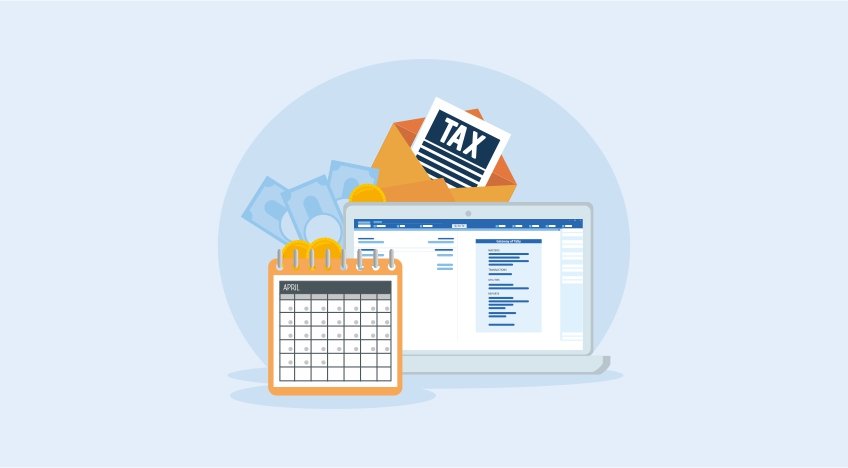Sign up for Value-Added Tax
A tax on the use or consumption of products and services is known as value-added tax, or VAT. At the point of sale, a five percent VAT is applied. Companies take up the tax and submit the necessary paperwork for the government. Find out how to register for value added tax (VAT) and submit VAT returns in the United Arab Emirates.
Regarding VAT
On January 1, 2018, the United Arab Emirates implemented Value Added Tax (VAT). VAT is charged at a rate of 5%. VAT will give the UAE a fresh revenue stream that it will keep using to fund the provision of top-notch public services. It will also assist the government in realising its goal of lowering its reliance on oil and other hydrocarbons for income.
Guidelines for VAT:
Treatment of some sectors for VAT (PDF, 218 KB)
Business VAT (PDF, 2.6 MB)
Education VAT (PDF, 1.81 MB)
Retailers’ VAT (PDF, 6.09 MB)
Guidelines for exempt and zero-rated supplies (PDF, 1.44 MB)
Ten essential VAT facts you should know (PDF, 1.64 MB)
Property treatment under VAT (PDF, 2.63 MB)
Imported goods’ VAT treatment (PDF, 336 KB)
Tax invoice: Know Your Rights (PDF, 4 MB)
Understand your rights – Education (140 KB, PD
Requirements for filing for VAT
In the following two scenarios, firms must register for VAT:
If a business located in the United Arab Emirates’s taxable supply and imports exceed AED 375,000 annually,
Regardless of the value, if a non-UAE-based company produces taxable supplies in the UAE, no one else is required to pay the applicable tax on these supplies in the UAE.
For companies whose annual supply and import totals surpass AED 187,500, VAT is optional.
A corporate entity reimburses the government for the taxes it receives from its clients. Simultaneously, the government reimburses it for the taxes it paid to its suppliers.
Businesses from other countries may also be able to recoup the VAT they pay while in the UAE.
How can I register for VAT?
Companies can register for VAT on the FTA website by going through the eServices area. They must first register an account, though.
You can use the ‘Contact us’ link on the Federal Tax Authority website to ask general questions concerning tax registration and/or application.
How is the VAT collected?
Customers pay the VAT as a 5% increase in the price of taxable goods and services they buy in the UAE; VAT-registered firms collect the amount on behalf of the government.
At every stage of the supply chain, the UAE charges tax-registered enterprises five percent VAT on taxable supplies of goods or services.
At the moment of sale, tourists in the UAE also pay VAT
Which firms are subject to VAT?
For VAT purposes, a few designated free zones have been identified. Even if supplies made in the designated zones are subject to particular regulations, enterprises created in these zones may still need to register for VAT if the registration requirements are satisfied.
Effects of Value-Added Tax
Effects of Value-Added Tax on Individuals
VAT is a general consumption tax that will be imposed on most goods and services transactions. There could only be a certain number of exemptions given.
The cost of living will therefore probably go up a little, however, just how much will depend on each person’s lifestyle and spending habits. An individual is unlikely to have a major rise in spending if his primary purchases are such items that are exempt from VAT.
The government will impose regulations requiring companies to disclose to customers the exact amount of VAT they must pay for each transaction. People can make purchasing decisions based on this knowledge.
VAT’s effects on enterprises
It will be the duty of businesses to meticulously record their revenue, expenses, and related VAT charges.
VAT is levied at the current rate on all clients of registered enterprises and traders, as well as on products and services that they purchase from suppliers. The government receives or reclaims the difference between these amounts.
Businesses that file for VAT generally include:
must recoup any VAT they have paid on products or services connected to their business. They are required to charge VAT on taxable items or services they supply.
preserve a variety of corporate documents so that the government may verify that everything is correct.
Businesses that are registered for VAT are required to submit regular reports to the government detailing the total amount of VAT they have collected and charged. The reporting will be completed online, and the submission will be formal.
GCC VAT
In view of its connections to the other GCC nations through “The Economic Agreement between the GCC States” and “The GCC Customs Union,” the UAE arranges the implementation of VAT with them.
+9 71 4 393 1773
info@thevatconsultant.com
https://thevatconsultant.com




